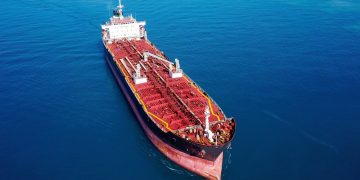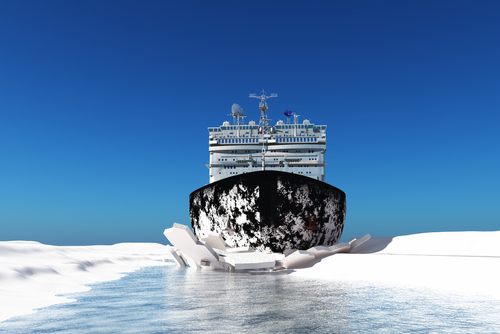The World Wildlife Fund (WWF) and the Clean Arctic Alliance are advocating for several key measures at the International Maritime Organization’s Marine Environment Protection Committee (MEPC 82), taking place 30 September to 4 October, 2024, to protect Arctic marine environments.
The environmental organizations are pushing for the mandatory use of cleaner distillate marine fuels to significantly reduce black carbon emissions from shipping, which pose a serious threat to vulnerable Arctic ecosystems. In addressing greenhouse gas emissions, WWF supports the implementation of the Carbon Intensity Indicator (CII) for ships, the establishment of a Global Fuel Standard for zero-emission fuels, and the approval of a carbon levy to finance a just transition within the shipping sector.
Additionally, WWF advocates for mandatory measures to manage underwater noise pollution from shipping, emphasizing that reducing vessel speeds can lower both carbon emissions and the risk of ship strikes on marine life, particularly whales.
Simultaneously, the Clean Arctic Alliance urges member states to regulate black carbon emissions from shipping in the Arctic and ban scrubbers in the region, especially given that 2023 was the fourth warmest year in the Arctic and significant declines in sea ice continue. WWF also calls for a ban on scrubber wastewater discharges in coastal and marine protected areas, as scrubbers allow ships to use heavily polluting fuels like heavy fuel oil (HFO), resulting in considerable marine pollution and health risks.
As explained, black carbon has been linked to a 24% reduction in Arctic sea ice reflective capacity. Dr. Sian Prior, Lead Advisor to the Clean Arctic Alliance, stresses the urgent need for regulations that identify suitable fuels for polar regions to effectively curb black carbon emissions from international shipping.
Despite 21 meetings over the last 15 years, no binding regulations have been established, and black carbon emissions from ships in Arctic waters have increased by 37% in the past decade, the Alliance notes.
Finally, the Clean Arctic Alliance supports the establishment of two new Emission Control Areas (ECAs) in the Canadian Arctic and the Norwegian Sea, requiring ships to reduce sulfur and nitrogen emissions through cleaner fuels. While ECAs do not fully address black carbon concerns, they are vital for enhancing air quality and protecting human health.


































































